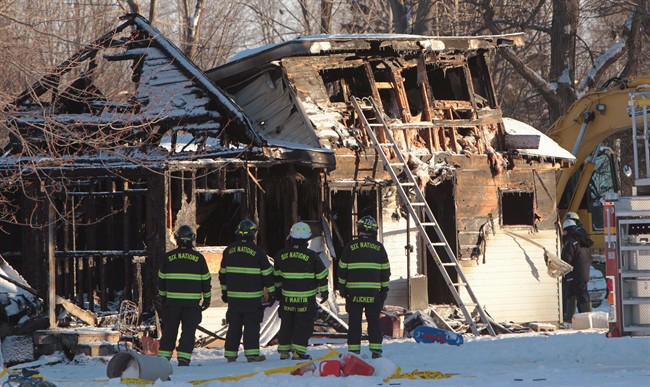A state of emergency remains in effect for the Oneida Nation of the Thames as water levels have fluctuated from critically low to extremely high in a “very short time frame.”

Oneida officials first declared a state of emergency on Dec. 15, 2022, after an “all-time low water level was recorded in the community’s water tower,” its main source of water. Community members were asked to cease all non-essential water use over the holiday period.
While the conserve water notice has since been lifted, both the state of emergency and the boil water advisory remain in effect.
“December was a really unprecedented time for our community,” said Brandon Doxtator, an elected councillor for the Oneida Nation of the Thames. “The main reason why we’re keeping the alerts is that we’re still monitoring the aquifer and the water levels of the Thames River.”
Oneida’s drinking water is sourced from the Thames River, unlike neighbouring non-Indigenous communities, which source their supply from Lake Erie or Huron.
During events of significant rainfall, just upstream, the City of London has reportedly dumped millions of litres of raw sewage into the river.

However, Doxtator said that climate change is “one of the main factors” in the community’s recent water-related challenges.

Get breaking National news
“Having such a low level of water in the Thames River over the past month or so has really put a burden on the system,” he said.
According to a press release from the Oneida Nation of the Thames, their emergency control group met with representatives from Indigenous Services Canada (ISC), the City of London, Middlesex County, the Ministry of Natural Resources and other emergency management services to “create short-term relief, including expensive external water truck deliveries.”
The deliveries reportedly came from a private water company in Kitchener, something Oneida’s chief said would cost taxpayers upwards of $20,000 per day.
However, the release stated that the long-term solution remains a “long, drawn-out process” that has yet to be determined.
Doxtator said that over the holiday period, residents were feeling guilty about using any amount of the available water.
“They need clean clothes, they need their dishes washed essentially, and even to have a five-minute shower, community members are feeling really guilty about that,” he said. “Everyone is really trying their best to conserve the water (but) there’s this sense of frustration and guilt for just turning on the tap.”
However, officials said both water and monetary donations continue to pour in from the public to Oneida’s bottled water delivery program.
Additionally, since the state of emergency announcement last month, several social media campaigns have been launched due to public outcry and a call to action to contact local MPs.
“There have been unprecedented responses from both media and the public, with invitations sent to government officials to come to the table with a meaningful solution with little to no response,” says Pam Tobin, chief executive officer of Oneida. “This is simply unacceptable.”

A boil water advisory has been in effect on the Oneida public water system since September 2019, becoming a long-term problem in September 2020. Oneida leaders and residents have called for improvements to the community’s water infrastructure for more than a decade.
The ongoing advisory currently affects 546 homes and 22 community buildings.
Doxtator said the Oneida community needs $54 million in funding to address both “quantity and quality” issues in the nation.
“This water conservation alert was a quantity issue where we didn’t have enough supply, quality is the boil water advisory, and so it’s a dual issue here,” he said.
With an agreement in the works with the Lake Huron Water Tribunal, Doxtator said that “this funding would allow us to bring that critical infrastructure into the community, upgrade our infrastructure, and also provide critical fire hydrants to the nation.”
He referenced the sixth anniversary of a deadly fire on the First Nation that killed a father and his four young children.

“We’re still at risk if anything like that were to ever happen again,” Doxtator said.
Oneida leaders thank the public for their support and continue to ask people to contact their local MPs to voice their opinions and address the need for clean drinking water.
— with files from Global News’ Matthew Trevithick.
- High blood pressure drug recalled over low blood pressure pill mix-up
- ‘Doesn’t make sense’: Union files labour complaint over federal 4-day in-office mandate
- Canadian Tire ordered to pay nearly $1.3 million for false advertising
- Ottawa gives Canada Post a $1.01-billion loan amid ongoing financial struggles











Comments